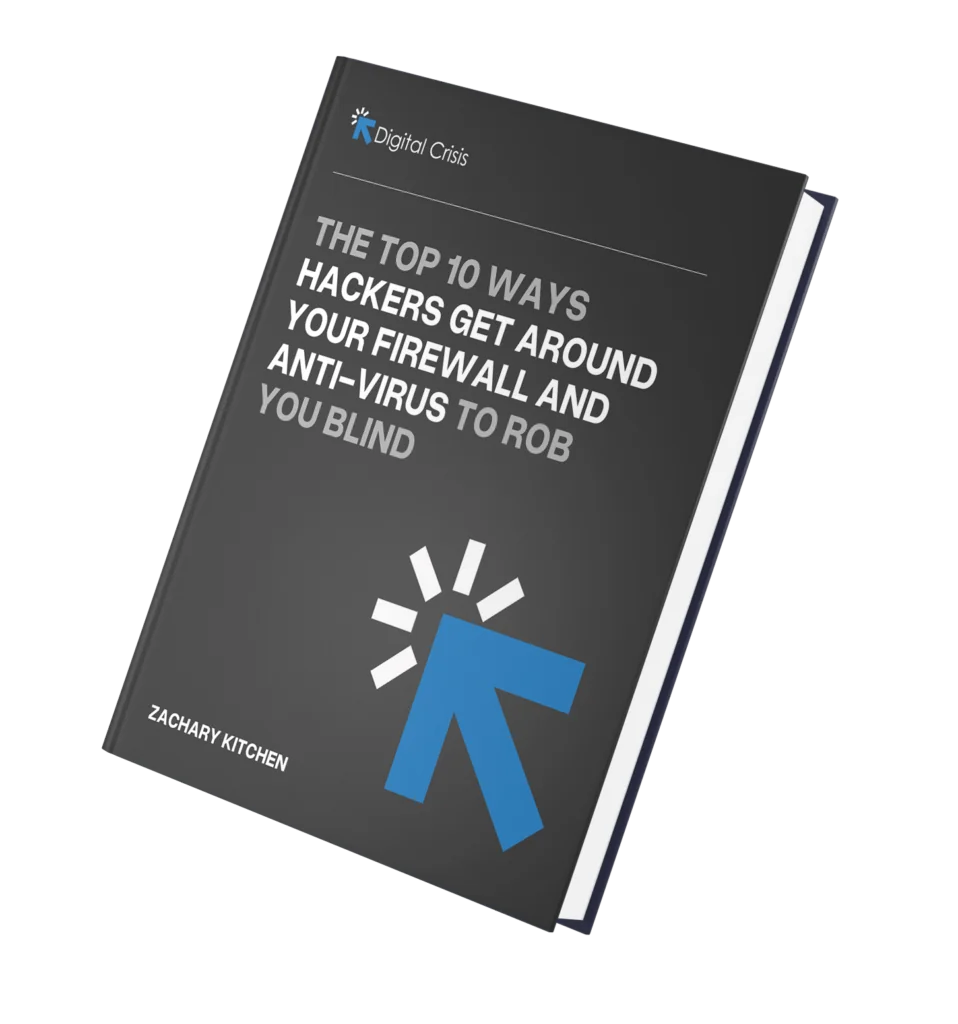Beyond Antivirus: Essential Cybersecurity Tools Every Small Business Needs (and Can Afford)
Are small businesses still flying under the radar when it comes to cyber threats? Not anymore. Cybercriminals have shifted their attention to small businesses, recognizing that they often lack the robust security measures of larger corporations. This makes them prime targets for attacks.
If you’re a small business owner juggling a tight budget while trying to protect sensitive data, you might be asking: what cybersecurity tools can I actually afford and trust?
Good news. You don’t need a million-dollar budget to build a strong defense. While antivirus software is a good starting point, it’s no longer enough. This guide explores essential cybersecurity tools, beyond just antivirus, that every small business should consider. The best part? They’re affordable, accessible, and easy to implement.
Why Doesn’t Antivirus Alone Cut It Anymore?
Antivirus software is a household name in cybersecurity. For good reason, it’s designed to detect and remove malware before it causes damage. But modern threats have evolved. Ransomware attacks, phishing scams, and zero-day vulnerabilities often bypass traditional antivirus defenses. According to Verizon’s 2023 Data Breach Investigations Report, 43% of cyberattacks targeted small businesses.
Today’s cyber threats are not only more complex but also faster and more automated. Traditional antivirus solutions rely on known threat signatures, which means they’re often reactive. If a new type of malware appears, it might slip through undetected unless you’re using more advanced tools.
That’s why businesses of all sizes are shifting toward multi-layered security strategies that combine real-time monitoring, behavior analysis, and preventive measures.
Affordable Cybersecurity Tools Every Small Business Should Consider
You don’t need an enterprise-grade security budget to protect your business. Here are some budget-friendly tools that offer maximum security without emptying your wallet.
Endpoint Detection and Response (EDR)
Why it matters:
Traditional antivirus solutions often miss sophisticated threats like fileless malware and ransomware. Endpoint Detection and Response (EDR) tools fill that gap by continuously monitoring and analyzing activity on endpoints (like laptops and mobile devices) to detect suspicious behavior.
Benefits:
- Real-time threat detection and response
- Behavioral analysis instead of just signature-based detection
- Remote isolation and remediation of compromised devices
Unlike antivirus software that only reacts to known threats, EDR solutions provide in-depth visibility into endpoint activity. With this visibility, businesses can identify and neutralize suspicious behavior before it becomes a serious breach.
Affordable EDR tools to consider:
- SentinelOne Core – Offers automated detection and response with AI-driven analytics.
- Microsoft Defender for Business – Integrated with the Microsoft 365 ecosystem and designed for small to mid-sized organizations.
Multi-Factor Authentication (MFA)
Why it matters
Passwords alone no longer provide sufficient security. In fact, 81% of hacking-related breaches stem from weak or stolen passwords, Verizon reports. This alarming statistic highlights the need for additional layers of protection, such as Multi-Factor Authentication (MFA), to secure sensitive data and accounts effectively.
Multi-Factor Authentication (MFA) adds an extra layer of security by requiring users to verify their identity using two or more credentials. Typically, something they know (password), something they have (a smartphone), or something they are (biometrics).
Benefits:
- Blocks 99.9% of automated attacks
- Easy to deploy using tools like Google Authenticator or Microsoft Authenticator
- Often free or included with platforms you already use (e.g., Microsoft 365, Google Workspace)
MFA dramatically reduces the risk of unauthorized access to your systems. Even if a hacker gets your password, they can’t log in without the second factor. Always ensure that you enable MFA for all critical systems, including email, admin accounts, cloud services, and financial platforms.
DNS Filtering Services
Why it matters:
Many cyber threats originate from visiting malicious websites. DNS filtering tools prevent employees from accessing known dangerous or inappropriate domains. Think of DNS filtering as a digital bouncer. It intercepts a web request and blocks access if the destination is suspicious.
Benefits:
- Stops malware before it enters your network
- Prevents access to phishing and adult sites
- Cloud-based and easy to manage
DNS filtering is especially important for remote teams working outside of office firewalls. It ensures that employees remain protected wherever they are.
Affordable DNS filtering solutions include:
- Cisco Umbrella for Small Business – Provides content filtering and threat intelligence.
- Cloudflare Gateway – Offers a free tier with solid baseline protection.
Password Managers
Why it matters:
Weak, reused, or easy-to-guess passwords are a hacker’s best friend. A password manager generates strong, unique passwords and stores them securely.
Benefits:
- Protects against credential stuffing attacks
- Makes managing passwords easier for non-tech-savvy users
- Syncs across devices for remote work environments
Password managers also help enforce password policies across your organization, making it easier to manage user credentials.
Top affordable password managers:
- Bitwarden – Open-source, secure, and budget-friendly. Offers team plans at low cost.
- 1Password for Business – User-friendly and includes advanced team collaboration features.
Ensure that you look for password managers with built-in breach monitoring and dark web alerts.
Cloud Backup and Disaster Recovery
Why it matters:
Even with strong defenses, no system is completely foolproof. A backup is your ultimate safety net. Ransomware can encrypt files, but it can’t touch your backup if it’s stored securely and off-site.
Benefits:
- Protects critical business data
- Ensures business continuity in case of hardware failure, attack, or natural disaster
- Automates daily or weekly backups without user intervention
Cloud-based backup solutions allow for faster recovery, especially if you’re hit with ransomware or suffer from data loss due to hardware failure.
Recommended affordable tools:
- Acronis Cyber Protect – Combines backup, anti-malware, and endpoint protection.
- Backblaze for Business – Simple, reliable, and budget-friendly with unlimited storage.
Security Awareness Training Platforms
Why it matters:
Technology has its limits. Your employees are often the frontline defense against cyber threats. Security awareness training empowers them to spot phishing scams, avoid risky behavior, and respond smartly to suspicious activity. Since human error is a top cause of breaches, educating your team is critical to your cybersecurity strategy.
Benefits:
- Helps employees identify phishing emails and social engineering tactics
- Boosts overall cyber hygiene
- Includes phishing simulations and quizzes
Regular training ensures your staff knows how to recognize and respond to suspicious activity, whether it’s a shady email or a suspicious phone call.
Budget-friendly platforms include:
- KnowBe4 – Offers a vast library of training modules and phishing tests.
- Infosec IQ: Provides customizable content and employee tracking tools.
Firewall Solutions
Why it matters:
A firewall is your network’s traffic cop. It plays a key role in monitoring and controlling incoming and outgoing traffic based on predetermined security rules. Without it, you’re leaving your digital front door wide open.
Benefits:
- Blocks unauthorized access to your network
- Inspects traffic for malicious content
- Enables VPN support for remote teams
- Helps maintain compliance with data security standards
Affordable options for SMBs:
- Sophos XG Firewall Home Edition – Advanced features at zero cost for small deployments
- pfSense – Open-source and highly customizable with enterprise-grade capabilities
If you’re using only a router from your ISP, consider upgrading to a proper firewall to protect sensitive data and prevent lateral movement across your network.
Patch Management Tools
Why it matters:
Software vulnerabilities are a hacker’s favorite entry point. Patch management tools ensure your systems are up-to-date with the latest security fixes. Thus, they help reduce the risk of exploit-based attacks.
Benefits:
- Automates software and OS updates
- Reduces exposure to known vulnerabilities
- Supports compliance with regulations like HIPAA or GDPR
- Saves time and IT resources
Smart and affordable picks for SMBs:
- ManageEngine Patch Manager Plus – Covers OS and third-party app patching
- Ninite Pro – Simple, lightweight tool to patch common apps quickly
Ensure that you set up automatic patch schedules during off-hours to avoid interrupting business operations.
There’s no one-size-fits-all solution for cybersecurity, but combining the right tools creates a powerful, affordable defense. Start with Endpoint Detection and Response (EDR) for real-time threat monitoring and Multi-Factor Authentication (MFA) to protect logins. Use DNS filtering to block malicious websites and a password manager to securely handle credentials. Cloud backups ensure quick recovery from ransomware or hardware failure, while employee security awareness training reduces human error. Together, these tools form a layered strategy that protects your data, employees, and operations.
Cyber threats are constant, but with the right setup, your small business can stay secure and resilient.
Digital Crisis Can Help You Strengthen Your Cybersecurity
Are you looking for affordable, powerful cybersecurity solutions that are within your reach? At Digital Crisis, we can help you build strong, layered defenses that safeguard your business data, systems, and reputation.
Explore our Data Protection Services to get started.














